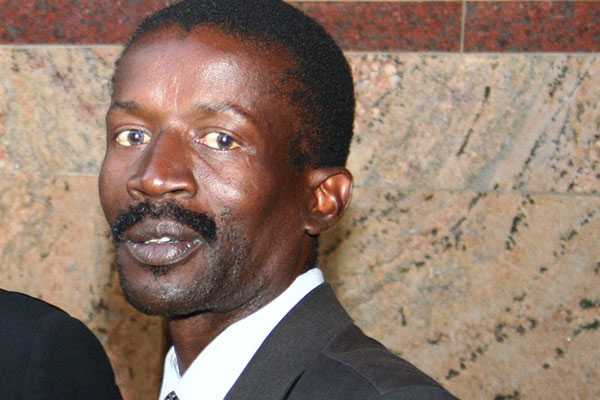UDC is a castle built in the air -Molefhabangwe
“There are no political hermaphrodites”, says former two-time Member of Parliament for Gaborone West South, Robert Molefhabangwe, as he unravels the riddle of the collapsing Umbrella for Democratic Change (UDC).
Endowed with the gift of the gab and without doubt, one of the finest MPs that ever graced the hallowed halls of Botswana’s Parliament, Bob, has never been a fan of the opposition coalition (UDC) – as constituted in its current form. “It would have been by sheer and mere luck if this coalition had borne any positive fruits,” he said in a recent interview. And indeed, Bob has consistently argued against this coalition, perhaps taking comfort from the benefit of hindsight.
Just a fortnight ago, the Botswana Movement for Democracy (BMD), was expelled from the opposition coalition, UDC, following a prolonged topsy-turvy, relationship. The coalition now remains with three partners – Botswana National Front; Botswana Peoples Party (BPP) and Botswana Congress Party (BCP).
Ahead of the 2014 general elections in which the UDC performed admirably, garnering a historic 17 Members of Parliament in the absence of the BCP – Molefhabangwe warned that the coalition model was akin to building castles in the air. Looking back on his time capsule, he concedes that Opposition MPs did increase post 2014 general elections, but contrary to popular belief he insists it was not on account of the coming together of the opposition parties.
Two things – the Botswana Democratic Party protest vote against the split that bequaethed BMD - and secondly the sympathy vote for “my nephew” – Gomolemo Motswaledi, the BMD leader who died in a freak car accident just before the general elections – were responsible for that gallant performance by opposition. But today as we approach the 2019 general elections without these factors, Molefhabangwe posits a rhetorical question, “Where are we”?
Somehow, he has an answer for it. He fears that on account of the flawed basis of the coalition, which was not a unity of the united, opposition activists risk becoming “opportunistic politicians” in like manner with opportunistic diseases that prey and fester on viruses. For example he wonders what the Opposition parties would talk about if John Kalafatis were not killed or if the National Petroleum Fund scandal was not exposed or better still, if one eligible bachelor had married?
Simple minds discuss people while serious minds discuss issues, he says, explaining that; “We (Opposition) failed to concentrate our minds on issues and wasted our time on trivial pursuits”. So, from the get-go, Molefhabangwe contends that the coalition template that produced the UDC was flawed because the constituent members – however desperate their ideological persuasions – never bothered to subject themselves to a value system or minimum programme of action to undergird their unity.
If ever they did, he says it was cosmetic, because as the Greek philosopher, Plato, says ‘Unity is for the united’ – hence a united people cannot be shaken. But, as current developments prove, the UDC partners do not respect each other; they do not like each other nor defer to each other, neither do they want to be reconciled to each other.
This group has failed to agree on an approach to tackle their common enemy – which is Batswana’s poverty in the midst of wealth; a deteriorating education system and the growing trend in which Batswana are being dispossesed of their land and turned into serfs and labourers in the ranches and farms of foreigners and the local elite. How then can a group that is not united hope to form any unity, asks Molefhabangwe and what assurance can such a group give people that it will be united at elections time?
The verdict: “It is better to disperse now and never to unite again,” he says because such a group cannot hope to form a government. Molefhabangwe's two terms in Parliament spanned 1999 to 2009. He inherited Gaborone South constituency from Paul Rantao following the 2004 delimitation, the constituency was renamed Gaborone West South.
Today the constituency is known as Gaborone Bonnignton South and is represented by President of Alliance for Progressives (AP), Ndaba Gaolathe – son of the late former Minister of Finance Development Planning and long time BDP MP, Baledzi Gaolathe.AP is a breakaway party of the BMD, which also broke away from the BDP over disgruntlement with the then party leader, Lt. Gen. Ian Khama’s administration style.
In the same breath, the BCP is a breakaway of the BNF and Molefhabangwe believes it is time that evreybody must “go back home” (Mongwe le mongwe a a boele ga mmaagwe).






